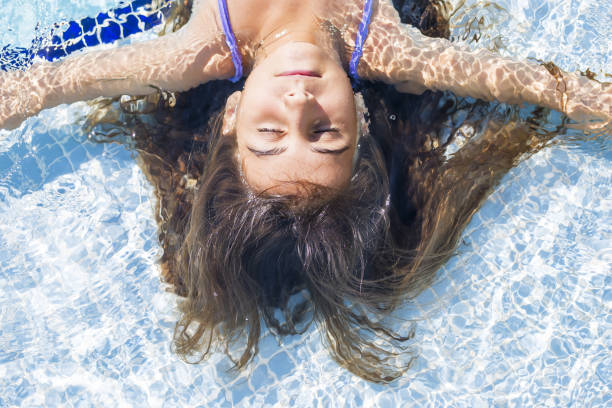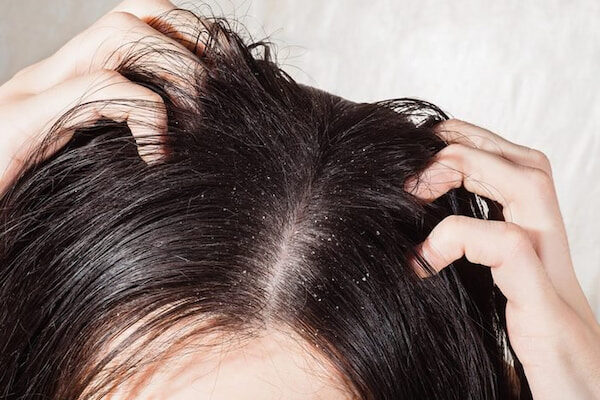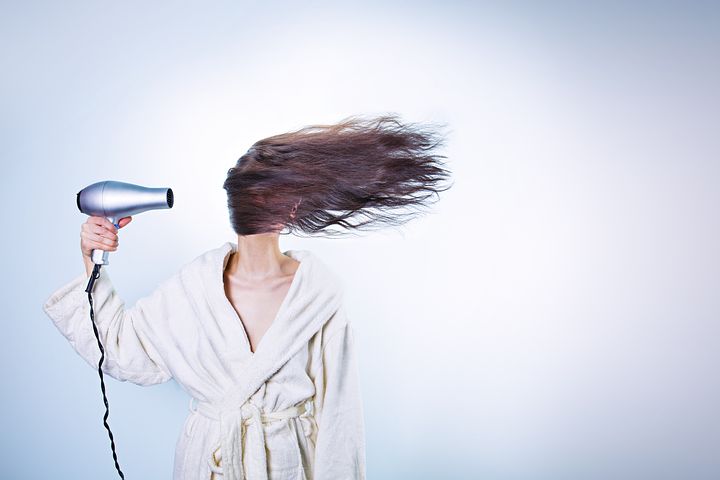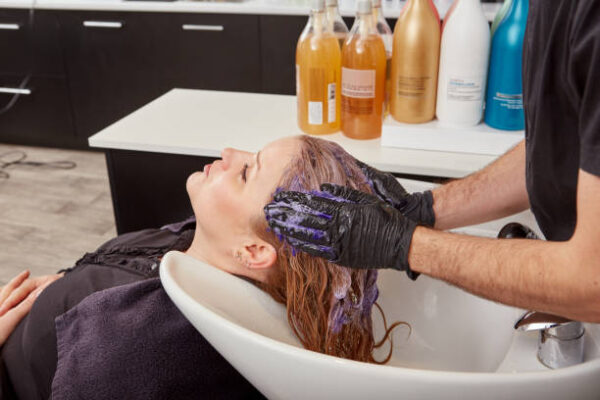Chlorine is a harsh chemical that can harm your color and appearance. However, it’s critical to be aware of the dangers so you can take the necessary precautions to maintain the health of your hair this season.
Quick view on how to protect hair from chlorine:
• Prior to and after swimming, rinse and dampen hair.
• Apply coconut oil, olive oil, and other organic oils to your hair.
• Use Swim Spray.
• Use gentle shampoos.
• Wear a swim cap.
• Put long hair up in a ponytail.
• In outdoor pools, swim.
• Use these after-swim hair care techniques.
In this article, we’ll examine the ways in which chlorine harms your hair, offer our professional advice on how to lessen or avoid chlorine deterioration, and discuss a few solutions for hair that has already suffered chlorine damage.
Table of Contents
8 Tips to Protect Your Hair from Chlorine
Rinse and Wet Hair before and After Swimming.
Lap swim etiquette is the spoken and unspoken “rules” of the pool that help keep everyone safe and healthy. When the pool staff advises you to take a shower before entering the water, for instance, there is a very good reason for doing so. In addition to keeping dirt and oils off of your body and off the pool bottom, this step protects your hair from chlorine damage.
Apply Coconut Oil, Olive Oil, and Other Natural Oils to Your Hair.
Consider using a leave-in chlorine protectant on your hair if you frequently swim or have hair that is more susceptible to chlorine damage. Natural oils, such as coconut oil, olive oil, and jojoba oil, serve as a barrier to stop chlorine and other pool chemicals from penetrating your hair strands. Use a deep conditioning mask or leave-in conditioner in addition to additional protection.
Use Swim Spray.
If you have light-colored hair, especially blonde hair, and are concerned about how chlorine will affect it, you can buy a swim spray product to spray on your hair to help prevent chlorine from penetrating your strands. All types of hair can use this product.
Use Gentle Shampoos.
No matter what kind of hair you have, we advise using a gentle, sulfate-free shampoo and conditioner after swimming. Any remaining chlorine from your hair is washed away with this.
Wear a Swim Cap.
If you’re a competitive swimmer, you probably already cover your head with a swim cap when you practice. Swim caps are excellent for preventing chlorine from ever getting to your hair. Make sure to wear it properly with all of your hair inside for the best protection. Remember to put your swim cap over wet hair to make it easier to fit over your head. It’s also a good idea to keep a few extra swim caps in your swim bag in case one tear.
Put Long Hair in a Ponytail.
Put your long hair up in a bun, braid, or tight ponytail if you don’t have a swim cap. By doing this, chlorine exposure will be reduced.
Swim in Outdoor Pools.
Swimming in outdoor pools is best when it’s possible. In outdoor pools, chlorine gas from the water evaporates more quickly into the air, lowering the concentration in the water and, ultimately, the amount of chlorine that might be absorbed in your skin and hair.
When you get out of the water is possibly the most important time to prevent chlorine-damaged hair. Chlorine can be removed from your hair and body after swimming to prevent it from penetrating too deeply.
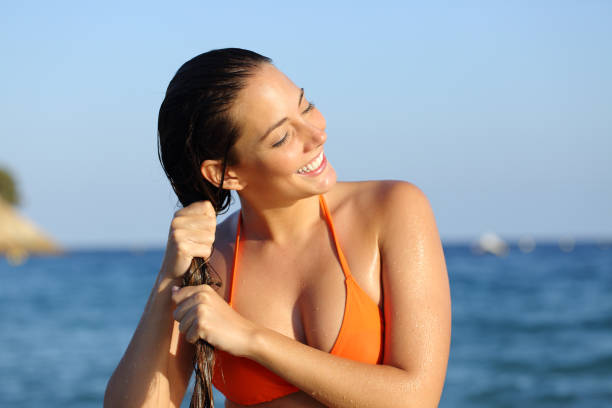
How to Fix Chlorine Damaged Hair?
Clarify Your Hair
Choose a cleanser that is detergent-free and works specifically to remove the chemical from your strands. Chlorine can remain in your hair even after you get out of the water, and if you frequent the pool, it can accumulate over time. For instance, New Wash respects your hair’s natural defenses while delicately dissolving chlorine.
Replenish Moisture
In order to restore chlorine-damaged hair, a good moisturizer is necessary because it may become dry and brittle. However, damaged hair requires more than just a standard conditioner; it necessitates a complete change in your daily habits.
Be Extra Gentle
Your hair may have damaged ends if you’ve been in chlorinated water for a long time. Even though it’s too late to undo what’s already been done, you can lessen the damage by making an appointment with your stylist to trim split ends and maintain regular haircuts.
What Does Chlorine Do to Your Hair and Skin?
Knowing what chlorine is—a chemical element with disinfectant properties—will help you understand how it affects your hair. Chlorine can clean drinking water, disinfect household surfaces, and shield crops from pests in addition to keeping swimming pools sanitized and germ-free.
Although it’s great for swimming pools, your hair and scalp shouldn’t benefit from its disinfectant properties. Chlorine can:
• Your hair will become dry, brittle, and dull from being stripped of its natural oils, which can result in split ends and other types of hair damage.
• dyes and colors react, fading much more quickly than they would naturally, or changing color entirely. (Yep, the whole “chlorine turns hair green” thing is partially true. This occurs when copper deposits in the water undergo oxidation due to the chlorine, and then the proteins in your hair form a bond with the copper.)
• Oils should be removed from your skin and scalp because they can lead to dryness, irritation, and itching.
• Make your hair more porous so that it is less able to retain moisture and is more susceptible to impurities.
Any type of hair can be harmed by chlorine, but some types are more susceptible than others. Be especially careful if your hair is:
• Fine
• Colored or bleached
• Dry or damaged
• Chemically treated or permed
• Naturally blonde
Summary
Even if you swim frequently in chlorinated water, you can maintain healthy hair. To continue enjoying your swims, use our advice to prevent chlorine damage to your hair.

